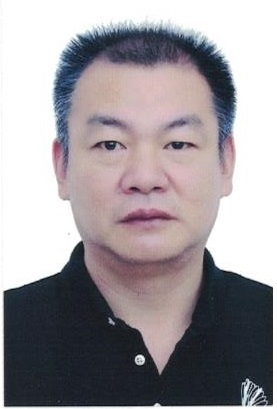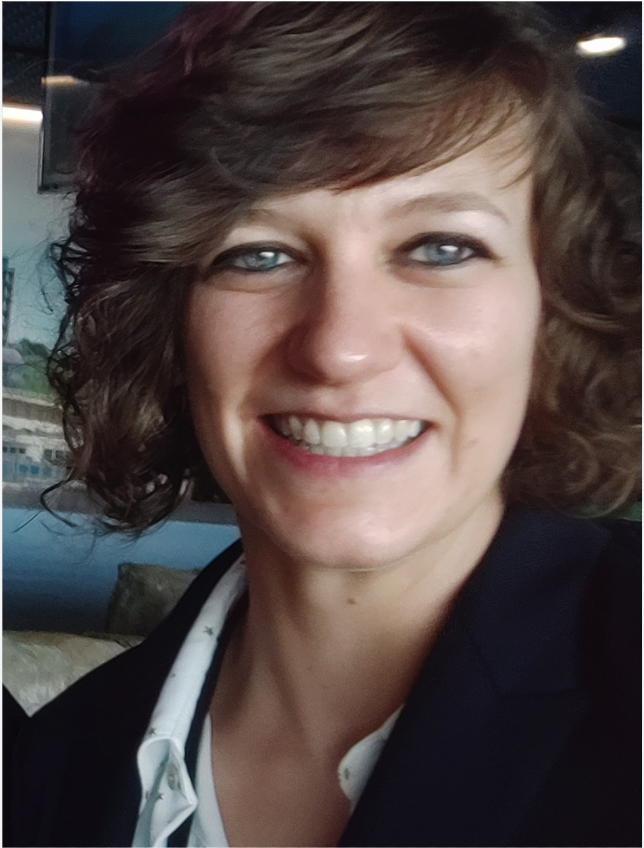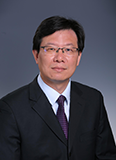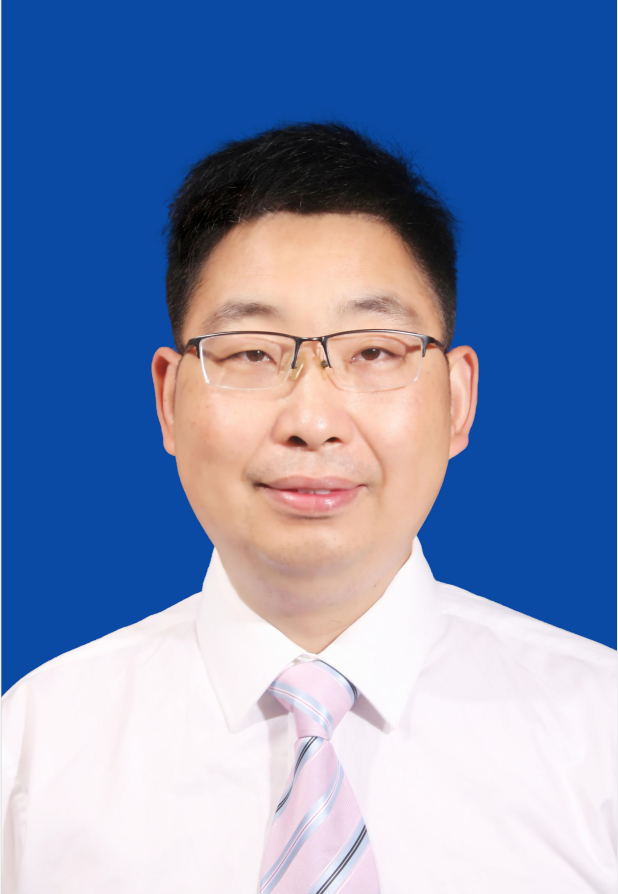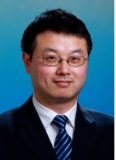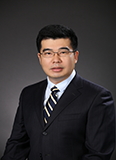
Speakers of 2023
Keynote Speakers | |
| Prof. Haisong Huang Guizhou University Experience: Huang Haisong, Ph.D., Full Professor, Doctoral Supervisor, Provincial Expert in Guizhou Province, Recipient of Guizhou Province's Hundred-Level Innovative Talent and Top Talent in Science and Technology, "BaYu Scholar Lecture Professor" in Chongqing, Special Committee Member of Industrial Control Branch of the China Computer Society, Special Committee Member of Industrial Big Data and Intelligent Systems Branch of the China Mechanical Engineering Society, and Special Committee Member of Digital Twins Branch of the China Graphics Society. In recent years, Huang Haisong has led over 20 national, provincial, and municipal projects. She has published over 60 high-level papers and been granted 16 invention patents. Additionally, she has authored one monograph. Huang Haisong has been honored with the Special Prize for Graduate Teaching Achievement in Guizhou Province, the First Prize for Scientific and Technological Progress in Guizhou Province, and two Second Prizes. She has also received the First Prize for Scientific and Technological Progress from the Chinese Association of Automation, the Second Prize for Innovation Achievements from the China Association for Promotion of Cooperation between Enterprises, Universities, and Research Institutes, the First Prize for Scientific and Technological Progress from the China Federation of Industry and Commerce, the Innovation Award from the China Association for Promotion of Cooperation between Enterprises, Universities, and Research Institutes, and the Second Prize for Scientific and Technological Progress from the China Instrument and Control Society. Speech Title: Research on Theory and Application of Complex and Imbalanced Data Processing in DT-driven PHM Abstract: In practical operating conditions, high-end equipment health monitoring data often exhibits complex and imbalanced characteristics, posing a challenging problem in classification modeling. Particularly in DT-driven PHM (Prognostics and Health Management), researchers often struggle to obtain a large amount of effective fault data prior to the occurrence of failures, making it a typical problem of small-sample modeling. In the previous stage, our research group conducted explorations on imbalanced classification and diagnostic modeling of typical components such as bearings and cutting tools under the environment of small-sample complex and imbalanced data. This exploration included (1) noisy and imbalanced data, (2) within-class and between-class imbalances, (3) multi-class imbalance, and (4) non-feature vector imbalance. We developed a series of usable and interpretable sampling balancing techniques, which were validated for feasibility in practical operating conditions. Since the commencement of the research, our research group has published nearly 10 papers in this field (including 4 SCI top papers and 3 EI papers) and obtained 1 invention patent. The achievements have provided guidance in revealing the evolutionary patterns of interpretable fault diagnostic modeling under imbalanced small-sample conditions and can offer theoretical and technical support to the field of approximate intelligent fault diagnosis. |
| Prof. Kehua Guo Central South University Experience: Dr. Kehua Guo is a Professor at the School of Computer Science and Engineering at Central South University. He was selected as The National Youth Talent Support Program, Hunan Furong scholar and got the Hunan Outstanding Youth Fund. Dr. Guo received his Ph.D. in Computer Application Technology from Nanjing University of Science and Technology in 2008. He has been selected as the Chairman of computer education special committee of Hunan Higher Education Society and Secretary General of Hunan Computer Education Instruction Committee. He has long been engaged in research on artificial intelligence, big data, intelligent computing, etc. He has published more than 100 research papers in international journals or conferences. He owns 16 patents for the invention of the country. Some of his research findings have been successfully applied in industry. He is a member of the procedure Committee of many international conferences and serves as guest editors in many well-known SCI journals. Title: Weak Sample Multimodal Data Learning Abstract: With the development of machine learning, especially deep learning, the lack of data labels leads to difficulties in traditional machine learning methods. This report introduces research from Dr. Kehua Guo's team about developing machine learning methods to analyze weak sample analysis for multimodal data, and its applications i.e., small sample data enhancement, modal imbalance semantic fusion and weak sample federated learning. |
| Prof. Lifu Gao Hefei Institutes of Physical Science CAS Experience: Lifu, Gao, doctoral supervisor, deputy director of Hefei Institute of Intelligent Machinery CAS, innovation leader of Anhui Special Support Program, etc. My research interests focus on robotics and sensors .I have taken a part in some national projects such as the 863 Program, ITER, and technology leader A of the Chinese Academy of Sciences. Space six-dimensional force sensor my group developed was successfully launched in 2016. We have developed some devices under nuclear environment such as ITER component transfer cask TECA, ADS refueling system, etc. My group also developed a manipulator system for autonomous operation in the 4500 meters deep-sea. Speech Title: A manipulator system for autonomous operation in the 4500 meters deep-sea. Abstract: A manipulator system for autonomous operation in the 4500 meters deep-sea will be introduced in the speech. I will talk about some key technical problems of kinematic analysis, trajectory planning, singularity analysis as well as brief introduction to the manipulator system configurations. In the speech I will also touch in sensors for object orientation and explain how the manipulator works automatically. |
| Prof. Hannah Bradwell University of Plymouth, Centre for Health Technology Experience: She is a Digital Health Research Fellow within the Centre for Health Technology at the University of Plymouth. She has extensive experience in digital health research, primarily in designing, implementing and evaluating novel technologies in health and social care, with a particular focus on end-user and stakeholder feedback. Speech Title: Implementing robotics: Identifying and involving the users. Case studies of companion robots in care and disinfection robots in hospitals Abstract: Robotics is a promising field of study and recent literature has demonstrated significant potential for the impactful use of robots in health and care settings. Globally, we have an ageing population and increasing burden of disease and disability, creating rising levels of reliance on health and social care resources. This challenge is exacerbated by the declining numbers within the health and social care workforce. Research has suggested robots could play a crucial role in supporting delivery of health and social care. Applications range from social robots for companionship and entertainment to physically assistive robots for support with activities of daily living. However, research has also demonstrated numerous robots designed for the field have failed, due to design issues, poor acceptability among the target audience or for failing to meet the expected cost-effectiveness outcomes. |
| Prof. Cinzia Giannetti Mechanical Engineering, Swansea University Experience: Cinzia Giannetti is Professor in the Department of Mechanical Engineering at Swansea University, where she co-leads the Materials and Manufacturing Research Institute. Cinzia is passionate about developing transformative technologies that can produce societal and economic impacts. In her role as co-Director of the Materials Made Smarter Research Centre, she leads digitalisation initiatives, pioneering the development and integration of AI in manufacturing industries. She is co-Investigator in the EPSRC Centre for Doctoral Training EPIC, which trains and nurtures an inclusive and diverse community of leaders in digital innovations. Cinzia has been actively involved in Digital Manufacturing research for over a decade. She was awarded an Engineering Doctorate (EngD) in Advanced and Sustainable Manufacturing from Swansea University in 2015 and became an academic member of staff in October 2016. She has been a recipient of the UKRI EPSRC Digital Manufacturing Fellowship (2018-2021) and has a track record of successful grant capture and delivery from a variety of sources (~£10M). Her current research focuses on the application of hybrid AI modelling approaches to generate actionable insights and enhance decision-making capabilities in complex industrial systems. She has made significant contributions to the development of novel data-driven approaches to improve the efficiency and sustainability of manufacturing processes, with developments successfully applied to different areas of manufacturing. Prior to her academic career, Cinzia worked in industry for a decade, where she led projects in software and consumer products development. Speech Title: Deep Learning for Predictive Modelling in Smart Manufacturing Applications Abstract: Smart factories are intelligent, fully-connected and flexible systems that can monitor and analyse continuous data streams from interconnected systems to make decisions and dynamically adapt to new circumstances. The implementation of smart factories is underpinned by Cyber-Physical systems and the deployment of Artificial Intelligence to integrate predictive capabilities and fosters rapid decision-making. In smart factories, most data collected are in the form of timeseries, ranging from machine signals, and production metrics, to quality control processes. In recent times, due to the promise of the application of Deep Learning (DL) to data analytics, time series prediction has seen the design, development, and deployment of DL models. Deep Learning (DL) has been applied in manufacturing to solve a range of tasks, including quality inspection, process control and optimisation, machine health monitoring, predictive maintenance, and production scheduling. However, the deployment of DL models in smart factories remains a challenge due to the complex and dynamic nature of manufacturing processes and gaps in the data, which cause degradation in model performance over time. In this talk, I will introduce recent advances in the application of Deep Learning to timeseries prediction in smart manufacturing. Through examples of my own research, I will show how model performance and robustness can be improved using transfer learning and hybrid modelling approaches, paving the way towards the realisation of the smart factory. I will conclude the talk by highlighting future research directions. |
| Prof. Ling Wang Tsinghua University Experience: Ling Wang received the B.Sc. and Ph.D. degrees from Tsinghua University, Beijing, China, in 1995 and 1999, respectively, and now is a tenured Full Professor in Tsinghua Univ. His research interests mainly include intelligent optimization, scheduling and applications. He has authored 5 academic books and more than 350 SCI-indexed papers and his publications have attracted over 30K Google Scholar Citations. He is the Editor-in-Chief of International J of Automation and Control, Complex System Modeling and Simulation, and the Associate Editor of IEEE Trans on Evolutionary Computation, Expert Systems with Applications, Swarm and Evolutionary Computation, etc. Prof. Wang received National Natural Science Award of China (2nd Prize 2014), Natural Science Award of the Ministry of Education (MOE) of China (1st Prize 2003, 2nd Prize 2007 and 2022), Technology Innovation Award (1st Prize 2019) and Natural Science Award (1st Prize 2021 and 2022) of China Simulation Federation, etc. He also received the Best Paper Awards of Acta Automatica Sinica (2014), Control Theory & Applications (2016), Control and Decision (2017), Journal of System Simulation (2021-2011) and several International Conferences. He was the recipient of National Natural Science Fund for Distinguished Young Scholars of China (2015), Young Talent of Science and Technology of Beijing City, New Century Excellent Talent in University by the MOE of China, Academic Young Talent of Tsinghua University, Young Scientist Award of CAA, Chinese Most Cited Researcher and IEEE TEVC Outstanding Associate Editor (2019~2022). Speech Title: Research Development of Optimization and Scheduling for Smart Manufacturing |
| Prof. Baicun Wang School of Mechanical Engineering, Zhejiang University Experience: Baicun Wang is currently a Research Professor and the Assistant Dean of School of Mechanical Engineering, Zhejiang University, China. Dr. Wang's research interests focus on research, innovation, and applications of human-centric new-generation intelligent manufacturing based on human-cyber-physical systems (HCPS), which include: (1) HCPS and human-robot collaboration, (2) Human-centric Smart Manufacturing, and (3) Human digital twin. Dr. Wang has secured over 10 research grants to date, with a total of more than ¥ 5 million. He has authored or co-authored in excess of 60 scientific articles in journals, books, and peer-reviewed conference proceedings. He served as the Guest Editor for Journal of Manufacturing Systems, Chinese Journal of Mechanical Engineering, MDPI journals, and reviewer for over 20 international scientific journals, including Robotics and Computer-Integrated Manufacturing, Journal of Manufacturing Systems, Nano Energy, and Applied Energy. He is also a Senior Member of Chinese Mechanical Engineering Society (CMES), a Senior Member of Chinese Association for Artificial Intelligence (CAAI). Title: Toward Human-centricSmart Manufacturing Abstract: In this talk, the evolutionary footprint of smart manufacturing is reviewed from the perspective of human-cyber-physical systems (HCPS), and the implications, characteristics, technical frame, and key technologies of HCPS for smart manufacturing are then discussed in depth. Then, human-centric smart manufacturing is discussed with its background, connotation, and applications. Finally, an outlook of the major challenges of human-centric smart manufacturing is proposed. |
| Prof. Hao Li Zhengzhou University of Light Industry Experience: Li Hao is a doctor, professor, doctoral supervisor and dean of School of Mechanical and Electrical Engineering, Zhengzhou University of Light Industry (ZZULI). Prof. Li is selected as the National Youth Talent of the “Ten-Thousands Talents Program”, Outstanding Expert of Henan Province, Distinguished Youth of Science and Technology Innovation in Henan Province, the director of the Key Laboratory of Intelligent Manufacturing of Machinery and Equipment in Henan Province. Prof. Li is the secretary general of the Digital Twin Special Committee of the CHINA GRAPHICS SOCIETY, a member of the expert Committee of China Service Manufacturing Alliance, and a member of the expert Committee of the State Key Laboratory of Mining Heavy Equipment. Prof. Li’s research interests include the intelligent design of complex products, digital twin, and intelligent operation and maintenance. In recent years, Prof. Li has hosted five national-level projects, such as the National Natural Science Foundation of China, and the National Key R&D Program Sub-project. Prof. Li published over 80 high-level papers, won 3 first prizes for outstanding natural science papers in Henan Province, authorized 15 invention patents, and won 1st prize for scientific and technological progress in Henan and 1st prize for machinery industry science and technology progress award. Speech Title: Research and application of industrial digital twin system Abstract: The research and application of digital twin (DT) in the manufacturing industry is in the leading position. An industrial Digital Twin System (iDTS) is a software-hardware integrated system oriented to mirror the industrial product’s life cycle from the demand analysis, scheme design, manufacturing, operation, and maintenance to recycling, to achieve the product optimization design, production line planning simulation, manufacturing process optimization, service operation control through the bidirectional mapping and the real-time interaction between physical objects and the corresponding DTs. First, the concept, system architecture, and operating mode of iDTS are illustrated. Second, technical challenges, like DT modeling evaluation, multi-physics simulation fusion of complex industrial systems, DT cross-lifecycle management, and security control of iDTS are investigated. Then, application exploration of iDTS is presented. Finally, the DT research team of ZZULI is briefly introduced. |
| Prof. Shichang Du Shanghai Jiao Tong University Experience: Shichang Du is currently a Full Professor with the Department of Industrial Engineering and Management, Shanghai Jiao Tong University, China. He received the B.S. and M.S.E. degrees in mechanical engineering from the Hefei University of Technology, Hefei, China, in 2000 and 2003, respectively, and the Ph.D. degree in industrial engineering and management from Shanghai Jiao Tong University, Shanghai, China, in 2008. He was at the University of Michigan, Ann Arbor, MI, USA, from 2006 to 2007, as a Visiting Scholar. His current research interests include production planning and schedule, quality control of manufacturing systems based on artificial intelligence and machine learning and engineering models. He has produced 10 Ph.D. graduates. He has published one book and more than 100 papers. He has served as PI and co-PI for projects totaling more than 30 million RMB, which were funded by National Science Foundation of China, Ministry of Science and Technology, Ministry of Industry and Information Technology, Shanghai Automotive Industry Corporation, Shanghai Aerospace Equipment Manufacturing General Factory, Weichai Power Co Ltd, Bosch Huayu Steering System Co., Ltd, and various other industrial companies. The technologies developed in Dr. Du’s research group have been widely implemented in various manufacturing systems with significant economic impacts. Dr. Du is an Area Editor of Computers and Industrial Engineering, an Associate Editor of Flexible Services and Manufacturing Journal, an Editorial Board Member of International Journal of Precision Engineering, an Editorial Board Member of Data Science and Management, and an Editorial Board Member of IEEM. Dr. Du received various awards for his research and teaching, including Shanghai Science and Technology Progress Award (First Prize), Shanghai Municipal Government, China, and Shanghai Young Scholar Science and Technology Rising-Star Award, Shanghai Municipal Government, China, etc. Speech Title: Modeling and Algorithm Design for multi-resource constrained flexible job shop scheduling problem Abstract: Scheduling plays a critical role in modern manufacturing systems, ensuring efficient utilization of resources and timely delivery of products. With diverse market demands and intense competition, the "high-variety and small-lot" production mode has gained popularity, leading to the emergence of the Flexible Job Shop Scheduling Problem (FJSP). In this context, effective scheduling becomes even more challenging due to the need to optimize production plans while considering multiple product types, limited resources, and varying processing requirements. This report focuses on the FJSP within the specific domain of engine manufacturing, where fixture and pallet resources are extensively utilized. The objective is to address the complexities arising from the simultaneous consideration of various resources and their interdependencies in the scheduling process. To tackle this problem, a comprehensive approach is proposed, consisting of three main steps. Firstly, a mathematical model is developed to accurately represent the FJSP with multi-resource constraints, which takes into account factors such as machine availability, processing time, and resource compatibility. Secondly, an innovative algorithm is designed to optimize the scheduling of operations, with which various search methods are hybrid. Lastly, extensive computational experiments are conducted on problem instances of different scales, demonstrating the effectiveness and scalability of the proposed approach. The results of this report contribute to the field of intelligent manufacturing, specifically in the domain of engine manufacturing. By addressing the FJSP with fixture and pallet resources, this study offers valuable insights and practical solutions to improve scheduling efficiency and resource utilization. The proposed mathematical model and algorithmic approach have the potential to be implemented in real-world manufacturing environments, enhancing productivity and competitiveness in the industry. |
| Prof. Zhenguo Nie Tsinghua University Experience: Sep. 2020 – Present, Department of Mechanical Engineering, Tsinghua University, Assistant Professor Feb. 2018 – Aug. 2020, Department of Mechanical Engineering, Carnegie Mellon University, Postdoc, Lecturer Oct. 2016 – Jan. 2018, Department of Mechanical Engineering, Georgia Institute of Technology, Postdoc Aug. 2006 – Aug. 2009, Department of Mold Design, Anhui Jianghuai Automobile Co., Ltd, Design Engineer Speech Title: Real-time accurate reconstruction of the workpiece's 3D temperature field during the metal additive manufacturing process Abstract: Predicting the temperature field during metal additive manufacturing is vital for fabricated metal microstructure control and property optimization. Traditional approaches like experiments or finite-element methods(FEM) can be quite time-consuming, which cannot obtain all the temperature information in real-time. However, the widely used data-driven machine learning method for accurate temperature prediction is impractical and computation-intensive due to its sole reliance on large datasets. At the same time, the physics-informed neural network (PINN) model can only predict the temperature field for objects with fixed shapes and pre-defined boundary conditions. We propose a mapping model based on computer vision and deep learning to reconstruct the workpiece's 3D temperature field accurately in real time during the metal additive manufacturing process. For workpieces with different geometries and physical boundary conditions, the model first reconstructs the workpiece's 3D surface temperature field by capturing its RGBD image and infrared thermal image, which is then used as input to the deep learning model to predict the workpiece's 3D internal temperature field. The results show that our model can achieve the accurate real-time reconstruction of the workpiece's 3D temperature field and has excellent generalizability for workpieces with unseen geometries. Due to its excellent generalizability, the proposed model has great potential for predicting temperature fields for other manufacturing and machining applications. |
| Prof. Yulong Huang Harbin Engineering University Experience: Yulong Huang received the B.S. degree in Automation from the College of Automation, Harbin Engineering University, Harbin, China, in 2012. He received the Ph.D degree in control science and engineering from the College of Automation, Harbin Engineering University, Harbin, China, in 2018. From Nov. 2016 to Nov. 2017, he was a visiting graduate researcher at the Electrical Engineering Department of Columbia University, New York, USA. From Dec. 2019 to Dec. 2021, he was associated with the Department of Mechanical Engineering, City University of Hong Kong, as a Hong Kong Scholar. His current research interests include state estimation, intelligent information fusion and their applications in navigation technology, such as inertial navigation, integrated navigation, intelligent navigation, and cooperative navigation. Currently, he is the Vice Dean, professor, and doctoral supervisor at the College of Intelligent Systems Science and Engineering, Harbin Engineering University. He is a national youth talent. He was supported by the Young Elite Scientists Sponsorship Program by China Association for Science and Technology, the Hong Kong Scholars Program and the Heilongjiang Province Young Scholars Program. He won the First Prize of the Natural Science Award of the Chinese Association of Automation (Ranked the 2nd), the Wu Wenjun Artificial Intelligence Excellent Youth Award, the IEEE Barry Carlton Award, the Honorable Mention of the IEEE Barry Carlton Award, and the Outstanding doctoral dissertation Award of the Chinese Association of Automation. He is an Associate Editor and Editorial Board member of IEEE Transactions on Aerospace and Electronic Systems, IEEE Transactions on Instrumentation and Measurement, and IEEE Sensors Journal and other top international journals. Speech Title: Robust State Estimation for Heavy-tailed Non-Gaussian Noises: Theory and Applications Abstract: State estimation is an important branch of automatic control, statistical signal processing, and information fusion theory. In navigation and localization applications, the vehicle maneuvering and environmental interference would induce heavy-tailed non-Gaussian noises. As a consequence, the classical Kalman filtering confronts severe performance deterioration, resulting in the navigation and localization failure. This session mainly focuses on the latest progress in the robust state estimation theory for heavy-tailed non-Gaussian noises and its applications in integrated navigation, visual-inertial odometry navigation, and cooperative navigation. |
| Assoc. Prof. Mario Gianni School of Electrical Engineering, Electronics and Computer Science, University of Liverpool Experience: Recently, he has been granted by the EPSRC National Centre for Nuclear Robotics project via a Flexible Partnership Fund in collaboration with Babcock International Group to undertake the collaborative research toward the development of a framework for autonomous robotic inspection and radiological characterization of the interior of variable size, multi-path and non-planar stainless-steel pipes. Dr. Mario Gianni also received a grant funded by Innovate UK for the Knowledge Transfer Partnership between the University of Plymouth and AB precision (Poole) Limited. The main objective of this project is to develop enhanced automation, mobile navigation and situational awareness for remotely operated vehicles for explosive ordinance disposal. Finally, he has been made a grant by the School of Computing, Electronics and Mathematics, University of Plymouth, for a project titled "HYDROBATES: Long-term UAVs Blade Inspections in Offshore Wind Farms". This project aims to create research opportunities at the University of Plymouth in the development of autonomous Unmanned Aerial Vehicles (UAVs) for long-term blade inspections in offshore wind farms. Speech Title: Challenges and recent trends in robot teaming for extreme environments: an in-field experience Abstract: Autonomous multi-robot systems for operations, maintenance and surveillance in extreme environments such as natural or human-caused disaster scenarios can be cost effective and time efficient alternatives to human intervention. Most importantly, they can prevent exposure of humans to hazards which may represents either a direct threat to life or long-term health consequences. In this talk I’ll discuss some of the main challenges and proposed solutions towards the development and deployment of such systems in real disaster scenarios with particular focus on situational awareness, coordination and cooperation and robustness. I’ll also discuss some of the main technological, social and economic barriers preventing autonomous multi-robot systems for being effectively and extensively deployed in practice including recent trends in trustworthy, shared autonomy and digital twinning. |


